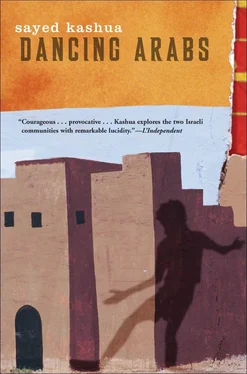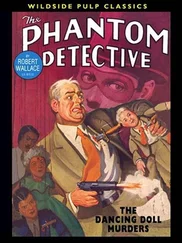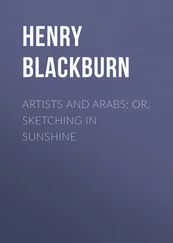When the war broke out, she managed to break the closure on Ramallah and reach Jerusalem. She dismantled her apartment, giving her furniture to her neighbors and her TV, VCR, and washing machine to friends. She says she could cram everything she owns into two bags. Which is good, because it will make it easier for her to pick up and leave next time.
Now she’s about to disappear again. If she’s quitting her job at the bar, I probably won’t see her in the near future. She runs off for long periods of time, and always comes back with stories like “I’ve made a film about the Nejaidat tribe in Jordan,” or “I’ve written a script for an Austrian film.” They always screw her. They don’t pay, they don’t broadcast what she’s done. Something bad always happens to her in the end, and then she runs away.
I’m so jealous of her now, with her bird and her two suitcases. She’s a beautiful girl, and there are lots of people who come to the bar just because of her. Black skin with curly hair and delicate features. The Arabs haggle with her over the bill. She gives in to them, anything just so they’ll leave. It’s the last shift, and she can’t stand the sight of them anymore. The lawyer-or-doctor in the suit is the only one left at the bar. He’s swaying already, rummaging through his coat pockets looking for his wallet.
I envy Shadia and she envies me: I have a wife and a child, I know where my house is, and I go back there every night. Not like her. Every time she looks for a home, she has to open an atlas. We’re stupid farmers, stupid fellaheen who won’t budge from our land. She can’t be like me.
PART FIVE. The Road to Tira
My father works at city hall. He issues ID cards, passports, birth certificates, marriage licenses, and death certificates. He works out of a small office in the basement, with a small window and a shutter that can’t be pulled down. For fourteen years now, my father’s been issuing IDs to the people of Tira. In the past, they had to go to the Ministry of Interior in Netanya to renew their ID or apply for a passport, but now they can do it in the village itself.
Father works from eight to four every day. All the workers at city hall have a reputation for being corrupt. People say they just sit around doing nothing and were appointed because they’re related to the mayor. My father hated himself for accepting the job, but Grandma and Mother had pushed him. They wanted him to work in the village, not far away, so he’d always be nearby and they could always find him. Getting that job cost Father everything he believed in. Fourteen years earlier he had supported a collaborator who was running for mayor, and his reward was to be allowed to work for the State. People said my father must have been a collaborator too. Otherwise how could he work for the Ministry of Interior after sitting in an Israeli jail on security charges?
People in Tira hated my father. Maybe Grandma’s right; maybe they really were jealous of him. My father didn’t have any friends except for Bassem, who’d worked in the packinghouse with him. Bassem couldn’t get out of bed anymore. His years of fruit picking had finished off his back. Every now and then, he’d have another operation, and Father would go visit him in the hospital. Sometimes he’d take the chessboard along, and Bassem would play from the bed.
I don’t remember ever seeing Father making friends with people who were considered well-educated — doctors, lawyers, teachers, or engineers. Sometimes I got the impression that he was embarrassed, that he felt inferior, with that job of his behind the broken shutter.
Father had never been so discouraged. He hardly left the house anymore. Soon as he got back from work, he got into bed and turn on the radio on the dresser. Sometimes he’d come into the living room to watch the news, and other times he’d just stay in bed till the following morning. He didn’t have much to do at work. Sometimes, weeks would go by and nobody from Tira would need Father’s intervention with the Ministry of Interior. Sometimes he got so bored that he’d renew all our IDs and passports, saying they’d expired. Why walk around with old IDs when he could get us new ones within two days, with the signature of the new Minister of Interior?
My father renewed his own ID card every week. Sometimes he considered changing his name. The fact that this was possible appealed to him. He updated the information: Israeli citizen, Arab, married, father of four. Date of birth: 0/0/47, because Grandma couldn’t remember exactly when Father had been born. When the Jews came and she went to register him with them, she couldn’t give them an exact date. All she knew was that it had been in the prickly pear season. Grandma says there was a war on then, and nobody paid much attention to dates of birth.
Everything changed when my Aunt Camilla from the Nur-Shams refugee camp in Tulkarm was dying, and father visited her in the hospital in Nablus. Her oldest son, Ibrahim, had gotten out of jail when the Palestinians entered the West Bank, and as a token of appreciation for what he had done on behalf of the State, they gave him a position in the Ministry of Interior in Tulkarm. Granted, his salary wasn’t as high as my father’s, but at least he had some status. In the hospital, he walked around with a pistol, and the doctors treated him with respect. Thanks to him, they let my aunt die in the fanciest room in the hospital, with partitions between the beds.
I’d stayed at her place when I was little. At night, there were big fireworks that lit up all the houses, and Aunt Camilla explained that they were army fireworks. I thought then that the camp looked so beautiful, with water running through little grooves in the middle of the street, and no sand at all. The children used the English term ice cream instead of the Hebrew glida, and when they played soccer, they said hands, not yad. Even then I knew her son Ibrahim was a hero, though I’d never actually seen him.
After my aunt died, Ibrahim took my father to visit the Palestinian Ministry of Interior in Tulkarm. They were going through some old papers, dating back to the days of the British mandate, when suddenly my father spotted his own name with a precise date of birth: May 14, 1948. My father was delighted to be one year younger. He held a big celebration with all our aunts, and even Bassem was taken out of his bed.
Then my father started tracking down the birth dates of my aunts and all our relatives who’d been born before the war, and all of them started celebrating their birthdays. Aunt Fahten, who was seventy by then, even had some performers at her party. She said it was her way of making up for all the years she couldn’t celebrate.
The rumor spread through the village, and people started saying Father wasn’t a collaborator after all, because otherwise how could the Palestinians be allowing him go through secret documents? The first one to ask my father to find out his date of birth was the mayor, and my father not only dug up his date of birth but provided him with a birth certificate. The mayor had his first birthday celebration in the soccer field, and in his speech he thanked my father for his help.
After that, Father barely found time to sleep. People who couldn’t get to him at work would come to our house asking for help. Knowing that he was doing it as a favor, and that it had nothing to do with his job with the Israeli Ministry of Interior, they started bringing gifts in return. Sheep, watches, ground meat, six-packs of Coke, packets of rice and sugar. Some of them offered money, but Father wouldn’t take it. He said the only money he’d accept was to cover the cost of the stamps he had to buy in Tulkarm, and he always gave them a receipt signed by the Palestinian Authority. Ibrahim had no problem producing the stamps and official receipts at the same printing press where he used to print protest posters. Father handed all the money over to Ibrahim and never touched it. He said Ibrahim deserved it; he needed to build a house now, and to find himself a good wife. Poor guy, twenty years he spent in jail, and now he didn’t even have a mother.
Читать дальше












